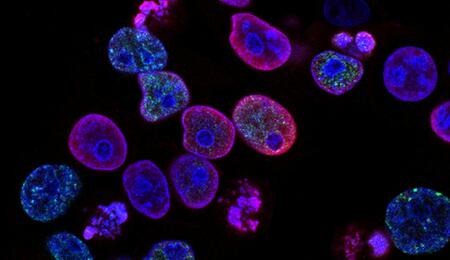Does Regular Cannabis Use Affect Our Genes?

Epigenetics explores how environmental factors can influence cellular properties and the activity of genes. While these changes in gene expression do not alter the DNA sequence itself, they do affect how genes are "read" and utilized.
The long-term effects of cannabis use on the human body have not been thoroughly studied. This is largely due to inadequate research stemming from the prohibition of cannabis. However, research on this topic is ongoing, particularly in the United States, where cannabis has been legal in certain states for several years.
What do the studies on cannabis and epigenetics say?
One notable study conducted by the University of Chicago investigated how cannabis use might affect gene expression. Researchers analyzed blood samples taken five years apart from individuals who had previously participated in the CARDIA (Coronary Artery Risk Development in Young Adults) study.
The current study included data from over 900 adults. Scientists asked each participant about their recent marijuana use and estimated total consumption, then examined the DNA methylation profiles of their blood samples to identify epigenetic changes linked to marijuana use. Methylation capacity refers to the body's ability to transfer methyl groups to various molecules, a crucial biochemical process that plays a significant role in numerous metabolic pathways, including DNA synthesis and gene regulation.
By studying changes in DNA methylation, scientists established a connection between marijuana use and alterations in the human epigenome. However, additional studies are needed to confirm and validate these findings. Other research has produced similar results, indicating that frequent cannabis use leaves distinct molecular traces on DNA, particularly in genes related to energy metabolism and immune function. Cannabis appears to affect various biological processes. Nonetheless, the impact of cannabis on epigenetics varies from person to person.
Since no two bodies function identically, it's challenging to determine whether every regular cannabis user is inherently more or less susceptible to mental health issues or other problems; such conclusions require further research. What does this mean for consumers? It indicates that cannabis is more than just a "natural product." Its use—whether medical or recreational—can have repercussions that extend beyond immediate effects.
Therefore, epigenetic research could provide valuable insights into understanding therapeutic benefits more clearly, identifying at-risk individuals, and developing new prevention strategies. Ultimately, the intersection of cannabis and epigenetics represents a pivotal crossroads in the future of medicine, where biology, behaviour, and environment converge. As is often the case in this field, the complexity involved is matched only by its potential.
More From Soft Secrets:




